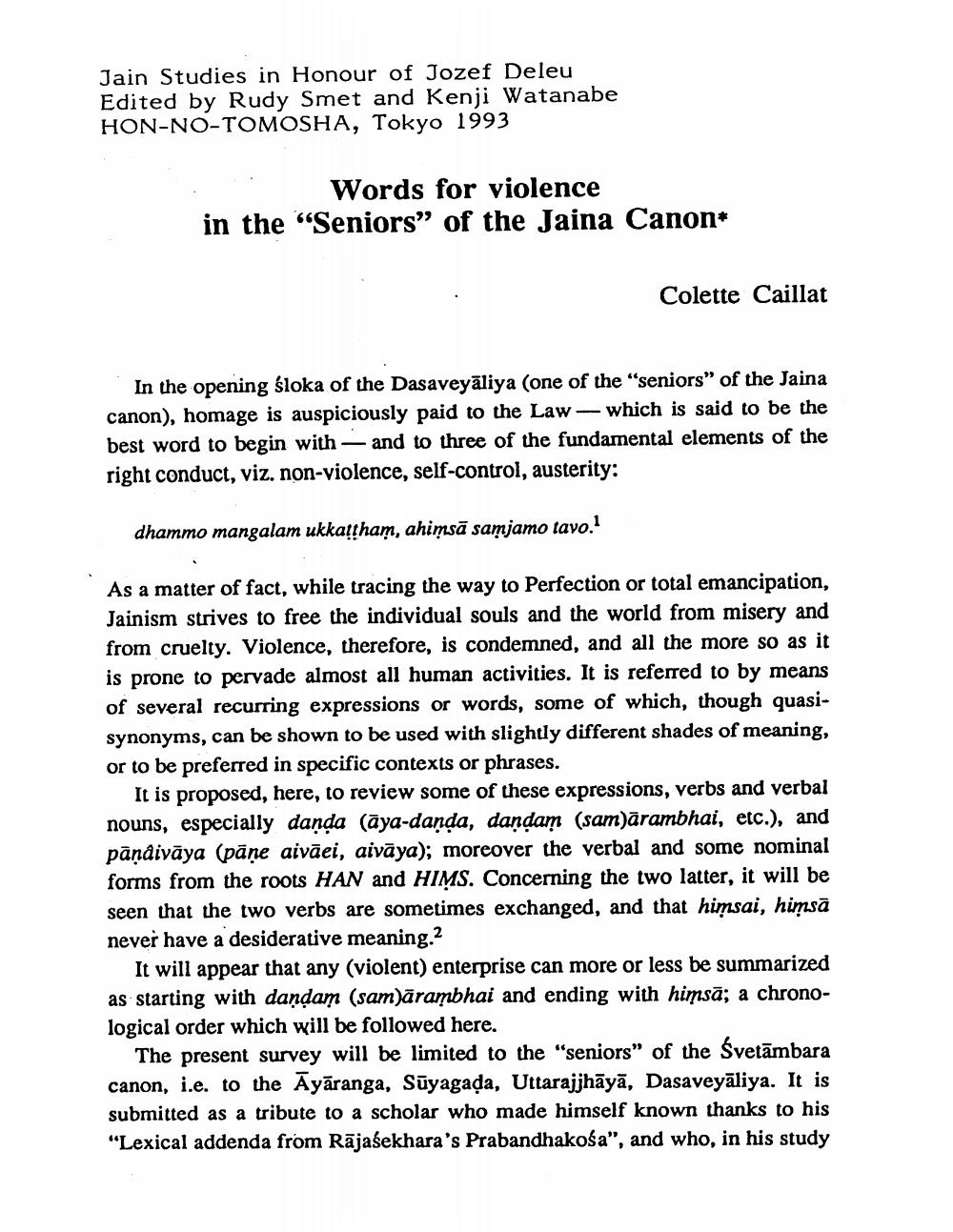Book Title: Words For Violence In Seniors Of Jaina Canon Author(s): Colette Caillat Publisher: Colette Caillat View full book textPage 1
________________ Jain Studies in Honour of Jozef Deleu Edited by Rudy Smet and Kenji Watanabe HON-NO-TOMOSHA, Tokyo 1993 Words for violence in the “Seniors” of the Jaina Canon* Colette Caillat In the opening sloka of the Dasaveyāliya (one of the "seniors” of the Jaina canon), homage is auspiciously paid to the Law -- which is said to be the best word to begin with — and to three of the fundamental elements of the right conduct, viz. non-violence, self-control, austerity: dhammo mangalam ukkattham, ahimsä samjamo tavo." As a matter of fact, while tracing the way to Perfection or total emancipation, Jainism strives to free the individual souls and the world from misery and from cruelty. Violence, therefore, is condemned, and all the more so as it is prone to pervade almost all human activities. It is referred to by means of several recurring expressions or words, some of which, though quasisynonyms, can be shown to be used with slightly different shades of meaning, or to be preferred in specific contexts or phrases. It is proposed, here, to review some of these expressions, verbs and verbal nouns, especially danda (āya-danda, dandam (sam)ārambhai, etc.), and pāņdivāya (pāne aivāei, aivāya); moreover the verbal and some nominal forms from the roots HAN and HIMS. Concerning the two latter, it will be seen that the two verbs are sometimes exchanged, and that himsai, himsā never have a desiderative meaning 2 It will appear that any (violent) enterprise can more or less be summarized as starting with daņdam (sam)ārambhai and ending with himsā; a chronological order which will be followed here. The present survey will be limited to the "seniors” of the Svetāmbara canon, i.e. to the Ayāranga, Sūyagada, Uttarajjhāyā, Dasaveyāliya. It is submitted as a tribute to a scholar who made himself known thanks to his “Lexical addenda from Rājasekhara's Prabandhakośa", and who, in his studyPage Navigation
1 2 3 4 5 6 7 8 9 10 11 12 ... 30
